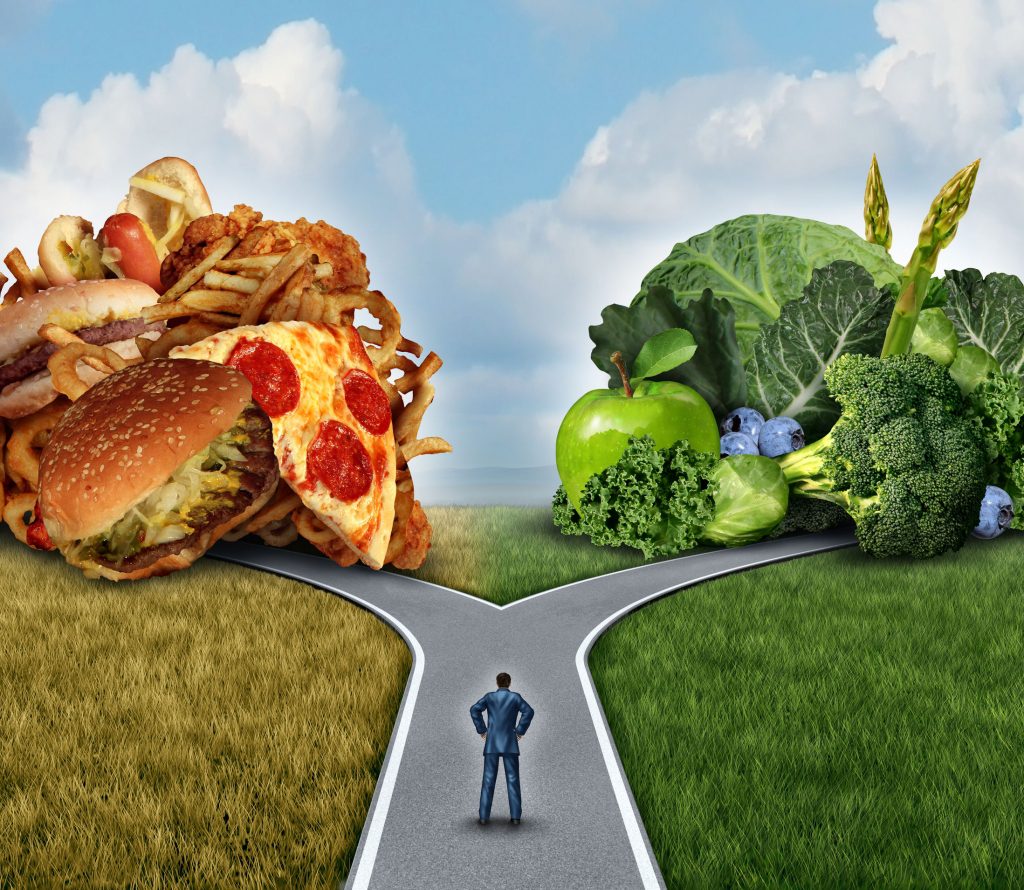Everyone knows that we live in an “instant society” where instant results and instant responses are expected. One would be hard-pressed to find a person between the ages of 8 and 78 who has not been affected by our hurried American western lifestyle. Most of us live a treadmill, hurried and rushed life without balance. We have become a society that finds it hard to stop and smell the coffee or the roses, or even stop to eat. That’s right, how we eat and what we eat is primarily based on ‘timekeeping’:
“I don’t have time to cook dinner tonight.”
“I don’t have time to sit and eat; I’m running late.”
“Hurry and finish your dinner, it’s getting late.”
“I will just pick up something quick and easy.”
“I didn’t eat my dinner until 10:00 at night.”
“I don’t have time to eat breakfast in the mornings.”
“I don’t have time to eat lunch; I will grab a burger on the way home for dinner.”
“I will eat en route to my next appointment.”
These are just a few of the statements I am sure we have all made or heard others make about the inability to make quality time for something as important and necessary as eating!
Fast-food for our ‘fast lives’ has become a way of life for many of us, and is no longer considered the staple of lower-income individuals. As a matter of fact, a recent publication suggests that fast-food (the drive-thru, cheap, greasy and inferior variety) is primarily consumed by middle-class Americans. Our lives have become so hectic and hurried that the quality of food we consume has become an afterthought. Americans clearly exist on a high-fat, high-sugar, toxic food system known as the Standard American Diet (SAD). And, although today we have more food than ever before, the food has less nutritional value than it did a century ago. In the US we are suffering from over-consumption and under-nutrition, and all the degenerative diseases that are related to consuming the SAD diet.
It Is All Interrelated
To survive we need oxygen to breathe and food to eat. Food not only nourishes the body, it nourishes the brain. The brain’s demand for nutrition is high, and any available nutrients from our food will be absorbed by the brain before any other system. Nutritional deficiencies caused by a stressful and hurried lifestyle, and the consumption of denatured food, often first will manifest as emotional symptoms. These symptoms also include brain endurance and cognitive issues.
Rabbi Gabriel Cousens, MD says this about the importance of food and how it maintains health, balance and harmony between the mind, body, and spirit:
Food is a dynamic force which interacts with the human on the physical body level, the mind emotional level, and also the energetic and spiritual level. The study of nutrition is the study of the interaction with and assimilation of the dynamic forces of food by the dynamic forces of our total being.
This is a harmonious eating.
I believe our hurried and rushed society has much to learn from Eastern cultures about balance and eating harmoniously. These cultures understand that everything we put into our mouths, our minds and bodies impacts our wellbeing.
Ayurvedic Medicine
Practiced in India for the past 5,000 years, Ayurvedic medicine (“science of life”) is an ancient medical practice that places equal emphasis on the mind, body and spirit, and views the diet as a way to keep the mind happy, clear and at peace.
In Ayurvedic medicine, it is believed that the cause of all disease is rooted in an accumulation of toxins in the body due to undigested and unabsorbed food. When we eat under stress (denatured and improperly prepared food), we create an environment that can only lead to nutrient deficiencies and dis-ease (imbalance) in the body. Stress increases the likelihood of inefficient digestion and malabsorption of nutrients. Stress also rapidly depletes B vitamins, and can cause hypoglycemia (low blood sugar spikes), hyperglycemia (high blood sugar spikes) or swings between them. It is not uncommon for some people to experience these low blood sugar symptoms between meals: cravings for sweets, irritability, dependency on coffee or sugar for energy, light-headedness, and agitation and nervousness. High blood sugar symptoms present as fatigue after meals, constant hunger, insatiable craving for sweets, frequent urination, general fatigue, and inability to lose weight. When blood sugar is unstable, the brain does not get enough fuel causing it to degenerate or not function as well as it could.
What and how we eat will determine how we feel. Foods that make us feel anxious, sluggish and fatigued are usually toxic to the body, dead, and highly refined. Have you noticed how sluggish you feel when you have eaten a big meal that consists primarily of rice, potatoes, bread or other starchy or refined carbohydrates? When blood sugar becomes unstable (high, low or combination of the two) from consuming such food, we experience surges in various hormones and brain neurotransmitters that can make you feel sleepy and even moody after eating. So if you want to feel alive and energized after a meal, it is vitally important to eat harmoniously by consuming a meal that is balanced and consists of fresh food that is also full of life and vitality. Additionally, food that has been over-cooked, pasteurized, and irradiated no longer has its original life-force and should also be avoided.
Consuming foods high in quality saturated fats (nuts, seeds, meat, fish, olive oil and coconut oil) will help build brain tissue and a healthy nervous system. Choose only organic food and eat a rainbow of leafy greens, vegetables, and fruit. These foods will help detoxify the body and help reduce acidity. Raw cultured vegetables bring balance by supporting healthy intestinal flora. Whenever the body has to compensate for an imbalance, there will be poor function. Healthy intestinal flora that has been compromised will only bring systemic bodily dysfunction. Poor digestion followed by brain fog and fatigue is one the chief complaints among my clients. It is all interconnected.
How to Eat Harmoniously
Create a healthy eating environment in your home because the way you eat is just as important as what you eat. Avoid microwaving your food because of its ability to change the structure of the food making it toxic to the body. All eating should take place seated and in a relaxing environment. Concentrate on chewing your food; and avoid loud noises, watching TV, and working while eating. The use of electronic devices and cell phones should also be avoided while eating. Yes, it is really okay to ‘not’ be available every waking moment. Consistent stress will lead to adrenal fatigue and will eventually throw off the circadian rhythm. We all know people who suffer from insomnia and energy lows during the day.
Remember that everything we take into our body and mind is interconnected and will either bring peace, balance and health, or will work against the body’s self-healing abilities and bring dis-ease. Finding balance and eating harmoniously is extremely important if you want to achieve and maintain optimal health. The human body systems are designed to work harmoniously. And when we disregard the food we eat as being fuel for the body, we work against its design. Would you put regular gasoline in a brand new Audi A8 and expect optimum performance? The answer should be ‘No!’ If you want the car to perform as it was designed by the manufacturer you would only use premium gasoline as required. Well, God manufactured our bodies! We are wonderfully made machines designed to be well and to self-heal. And in honor of God’s masterful creation (the body), we should consume a diet that is designed to work with the body and not against it.
I want to run like an efficient high-performing machine and I am sure you do too. Let us remember how important it is to stop and smell the roses (de-stress) and eat properly. If we fail to take care of the temple by allowing the hurried and rushed American Western culture to infiltrate every aspect of our life, then I believe we disappoint God! His best for us is that we walk in Divine health and be prosperous.
Resources
Kim D, Leigh, JP, Are meals at full-service and fast-food restaurants “normal” or “inferior”? Population Health Management, 2011 December; 14(6):307-15. doi: 10.1089/pop.2010.0071
The Living Centre www.thelivingcentre.com/cms/body/peace-through-a-sattvic-diet
Datis Kharrazian, DHSc, DC, MS., Why Isn’t My Brain Working? Carlsbad, CA: Elephant Press, 2013.




